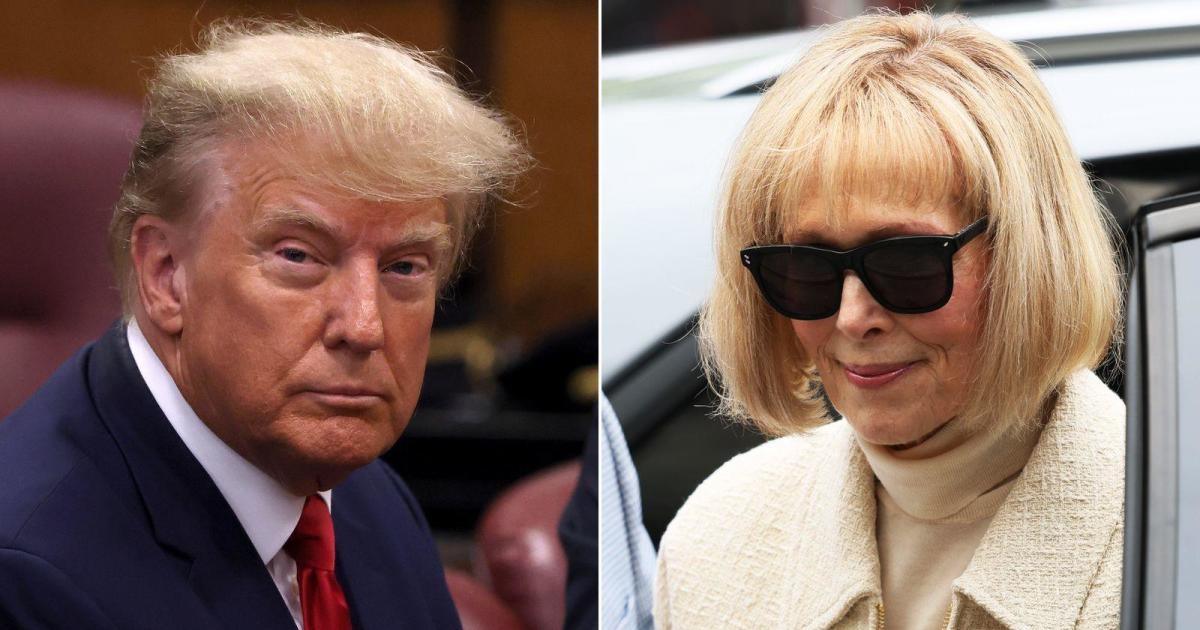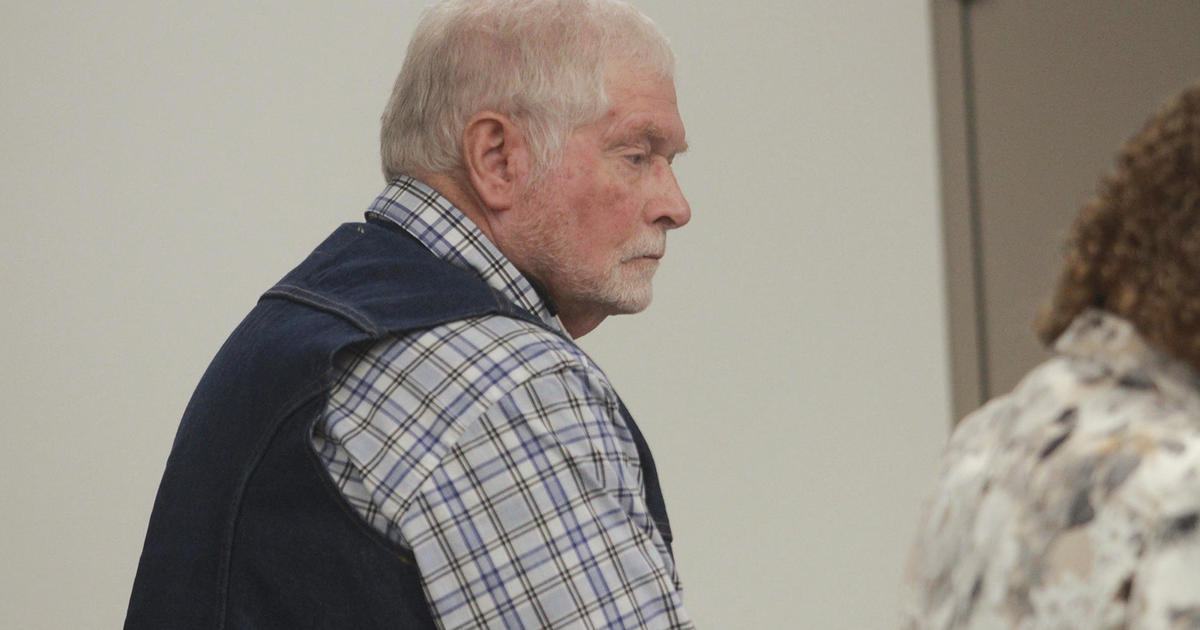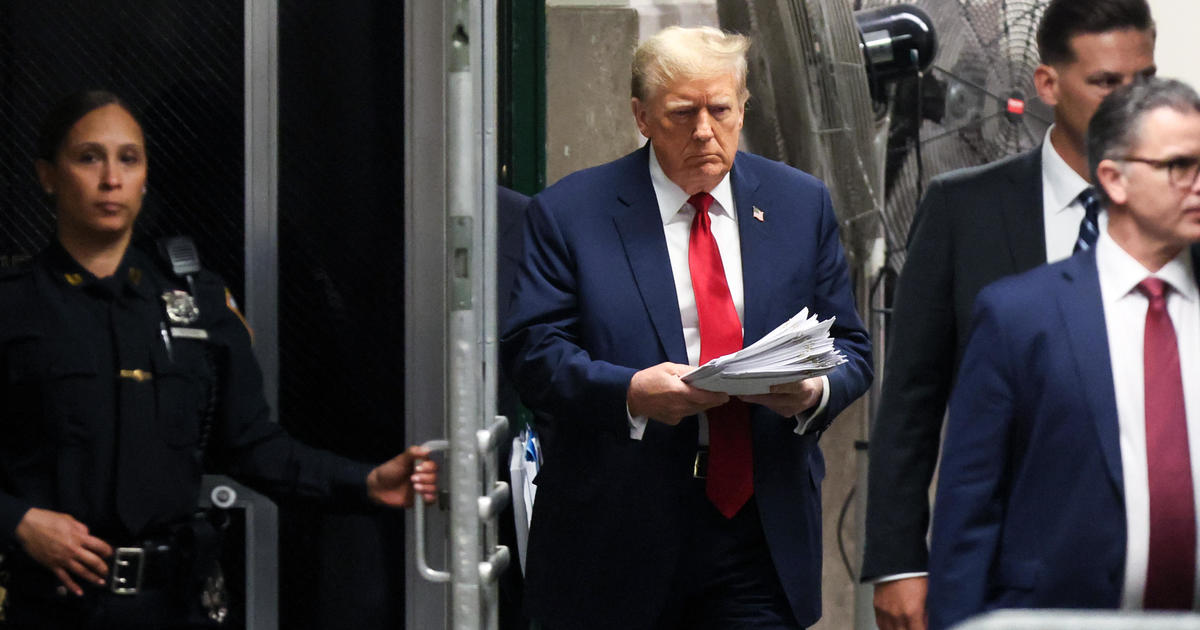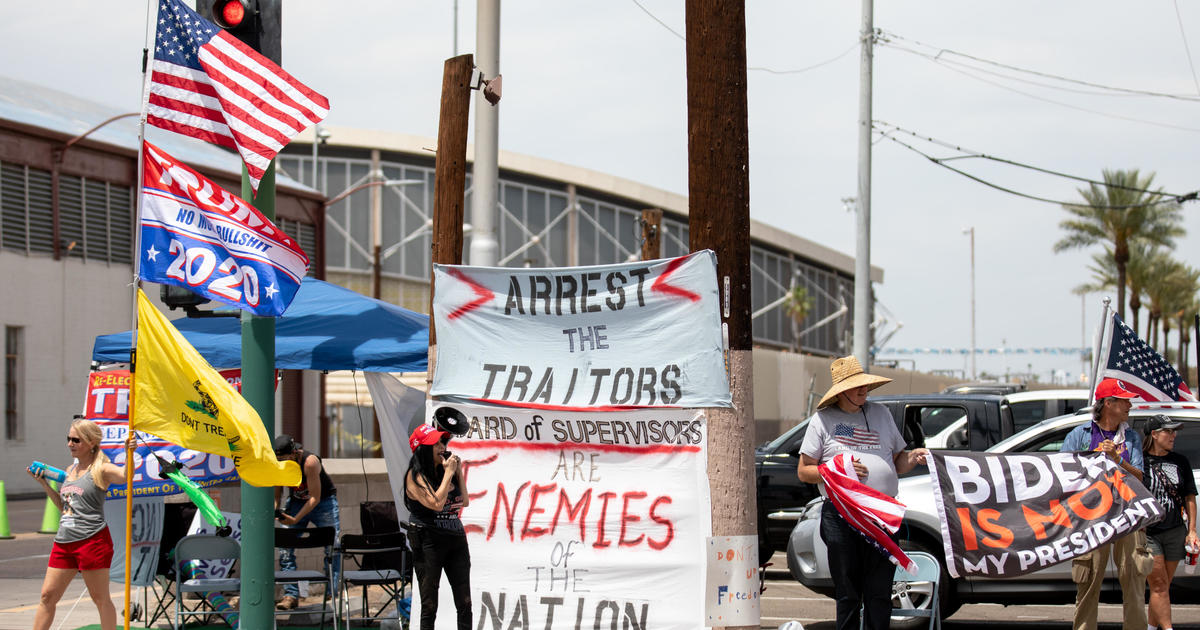Prosecutors say storming Capitol was "means" for Oath Keepers to keep Biden from becoming president
Washington — In closing arguments Friday, prosecutors argued that Oath Keepers leader Stewart Rhodes and four of his subordinates had made the historic decision to oppose the peaceful transfer of power from Donald Trump to Joe Biden on Jan. 6, 2021, using "any means necessary," attempting to upend centuries of lawful presidential transitions.
As the seven-week trial nears its end, government attorney Kathryn Rakoczy urged the jury not to "become numb" to the defendants' alleged talk of civil war, violent resistance and armed insurrection.
Rhodes and co-defendants Kelly Meggs, Jessica Watkins, Kenneth Harrelson and Thomas Caldwell stand accused of seditious conspiracy, the most serious crime so far charged in the Justice Department's sprawling investigation into the Jan. 6, 2021, attack on the U.S. Capitol. They have all pleaded not guilty, and their defense attorneys have worked to dismiss the incendiary and at times violent messages and recordings presented at trial as mere rhetoric and not revolutionary calls to action.
In a Washington, D.C., courtroom, Rakoczy began her closing argument with words Rhodes allegedly delivered to his followers days after the 2020 presidential election: "We are not getting through this without a civil war." This, she said, supported the government's theory that the defendants were "leaders" of a conspiracy to oppose the peaceful transfer of power, and the Jan. 6 Capitol breach was a means to that end.
The alleged conspiracy, she argued, was born of the defendants' "sense of entitlement that led to frustration, followed by rage and then violence."
"That is the story of this conspiracy," Rakoczy said Friday, accusing the defendants of thinking they were "above the law."
Rhodes, one of three defendants who opted to testify during the trial, was the "architect" of the plan, she alleged. And she reminded the jury of open letters they saw weeks ago that Rhodes is accused of sending to Trump, urging the then-president to try to hold onto power. Rhodes' letter and subsequent communications called on Trump to invoke the Insurrection Act, a centuries-old law that called for the armed defense of the government by militia to stay in power.
The defendants argued Trump never invoked the statute, and their actions did not constitute a conspiracy because they did not plan to enter the Capitol building that day. Rhodes is not charged with entering the building and testified that breaching the building was not part of the mission.
In a closing argument on Rhodes' behalf, defense attorney James Lee Bright said the government had not shown evidence of a "meeting of the minds" among the defendants in which they discussed overthrowing the government and storming the Capitol.
Bright said, "There was no meeting of the minds to conspire. It didn't happen."
Rakoczy told the jury the far-right group, charged with seditious conspiracy, was using the Capitol riot to further its mission to oppose the government.
Meggs, who allegedly called for a "killing spree" in Washington, D.C., in messages leading up to Jan. 6, and Watkins were said to be leaders of certain Oath Keepers factions, prosecutors said. And together with Harrelson and other coconspirators, they breached the Capitol building and ultimately interfered with law enforcement.
During her testimony, Watkins admitted to entering the building and said she regretted telling other rioters to "push" past police, even if that meant she was criminally culpable. She said she didn't plan to obstruct Congress and didn't conspire, but she still believed the 2020 election was not "free or fair."
And Caldwell, prosecutors said, worked to help form a Quick Reaction Force (QRF) on the outskirts of Washington, D.C., in a Virginia hotel room, allegedly helping others to amass weapons and gear, should they be called upon to fight. The defendants aren't charged with weapons crimes and have argued they didn't bring weapons into the the District because they were trying to be lawful.
Caldwell told the jury his calls for violence – including talks of civil war and "executing some traitors" – leading up to Jan. 6 were not serious and were meant in jest.
Rakoczy argued on Friday his assertions were "patently absurd, telling the jury, "This wasn't rhetoric. This wasn't ranting and raving. This was deadly serious."
"These defendants think that they are self-anointed to stand up for what they think is the real version of the law," Rakoczy said, adding later, "they saw the riot unfolding at the Capitol, they threw their bodies at the cause, and they took it."
Showing the jury a painting that hangs in the Capitol depicting George Washington's abdication of power in 1787, Rakoczy tried to invoke the historic gravity of the Capitol attack.
The defendants, she argued, committed the alleged crimes, "in favor of force, violence, and an unyielding desire to have the election go their way," an effort that she said continued even beyond Jan. 6.
Bright, Rhodes' defense attorney, contended the Oath Keepers' mission was not to promote violence, but to prevent it, by volunteering in hurricane efforts and violent protests to protect property and people.
"They engaged themselves legally for 13 years," Bright said, adding they have a "history" of paying attention to detail and law. And by the time the 2020 election came around, they had a "deep-seated fear" for the future of the country, one that ultimately led them to Washington, D.C.
Bright said the Justice Department had not met its burden to prove beyond a reasonable doubt "the big three" crimes alleged: "No plan to storm the Capitol…No plan to breach the rotunda...No plan to stop the certification of the electors," he argued.
The defendants engaged in "Horribly heated rhetoric" and "bombast," he conceded.
"You get to choose which way you look at it," he urged the jurors, but "lives are at stake. Human lives."
In his closing arguments, Woodward showed video of Meggs leaving the Capitol and argued that he was helping facilitate moving people outside the building — not trying to stop the certification of an election.
Woodward also argued the government had failed to produce evidence of the Oath Keeper's plans to enter the Capitol building. Woodward cited testimony that no messages were found among the tens of thousands that provided a plan to go into the Capitol building and stop the certification of the 2020 election. He did not deny that Meggs had entered the building, but he denied there had been any conspiracy behind it.
The jury did not have to agree with the defendants but "in our democracy, debate is encouraged," Woodward said. "They may have been wrong, but they have every right to speak their mind."



